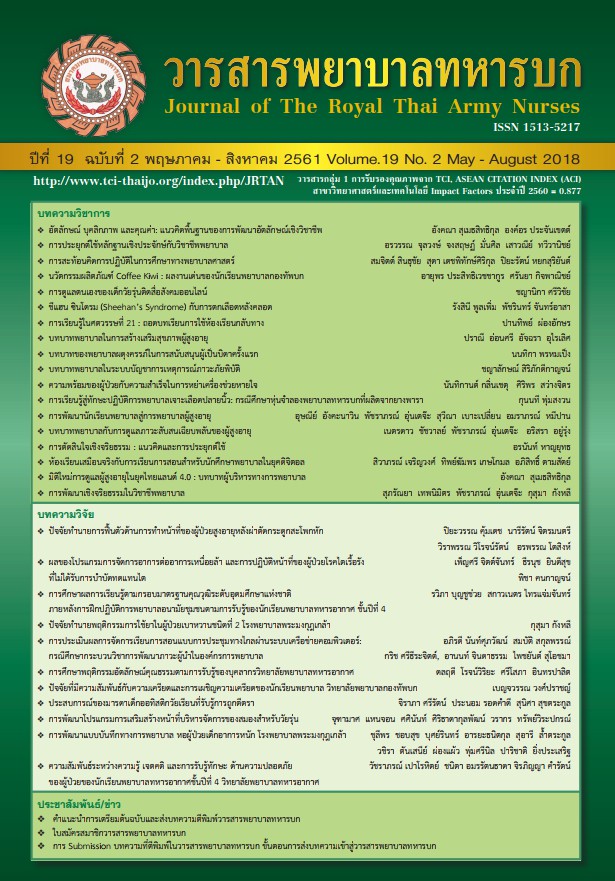Application of Evidence-Based Practice in Nursing Professions
Keywords:
Evidence-based practice, Nursing ProfessionalAbstract
Evidence-based practice (EBP) is a term that has come into frequent use in health care systems for decades. However, Professional nurses historically have been slow to use EBP in nursing. Many barriers have been identified as justification for not applying EBP in providing care. The crucial barriers that most often inhibit the use of EBP are related to attitude toward EBP. The difficulty nurses have are in being able to effectively critique the efficacy of research studies. Nurses typically do not have sufficient knowledge about research methodology. Also, nursing directors and executives have not developed an appreciation of the utility and necessity of implementing EBP. This has resulted in nurses not being given the time and resources, and other needed support, to achieve application of EBP. In order to meet the high standards required of 21st century nursing, nursing directors and executives must not only provide the necessary resources, but also mentor nurses so that they are sufficiently knowledgeable about research methodology. EBP support also depends on coordination across the entire health care team. The result will be a significantly higher quality of nursing care and the ability of nurses being able to provide care effectively.
Downloads
References
2. Mackey, A., & Bassendowski, S. The history of evidence-based practice in nursing education and practice. Journal of Professional Nursing 2016; 33(1): 51-55.
3. Royal College of Nursing. The Royal College of Nursing Clinical Effectiveness Initiative: A strategic framework. London: RCN; 1993.
4. Dale, A.E. Evidence based practice: Capatibility with nursing. Nursing standard 2005; 19(40): 48-53.
5. Sackett. D. L., Rosenberg, W. M.C., Grey, J.A.M., Haynes, R.B., & Richardson, W.S. Evidence based medicine: What is it and what it isn’t. It’s about integrating individual clinical expertise and the best external evidence. British Medical Journal 1996; 312 (7023):71-72.
6. Barker, J. Evidence-based practice for nurses (2nd ED.). Sage publication Ltd 2013, London.
7. Melnyk, B.M., & Fineout-Overholt, E. Evidencebased Practice in Nursing and Healthcare. Wolters Kluwer 2011, Philadelphia, PA.
8. McSherry, R., Artley, A., & Holloran, J. Research awareness: an important factor for evidence-based practice? World-views on Evidence-Based Nursing 2006; 3: 103-115.
9. Melnyk, B. M., Fineout-Overholt, E., Fischbeck Feinstein, N., Li, H., Small, L., Wilcox, L., Kraus, R. Nurses perceived knowledge, beliefs, skills, and needs regarding evidence-Based practice: Implication for accelerating the paradigm shift. World-views on Evidence Based Nursing 2004; 1(3): 185-193.
10. Brown, C.E., Wickline, M.A., Ecoff, L., & Glaser, D. Nursing practice, knowledge, attitudes and perceived barriers to evidence based practice at an academic medical center. Journal of Advance Nursing 2009; 65(2):371-381.
11. Solomon, N. M., & Spross, J.A. Evidence-based practice barriers and facilitators from a continuous quality improvement perspective: An integrative review. Journal of Nursing Management 2011; 19(1): 109-120.
12. Underhill, M., Roper, K., Siefert, M. L., Boucher, J., & Berry, D. Evidence-based practice beliefs and implementation before and after an initiative to promote evidence-based nursing in an ambulatory oncology setting. Sigma Theta Tau International 2015; 12(2): 70-78.
13. Pravikoff, D., Pierce, S. & Tanner, A. Evidence-based practice readiness study; supported by academy nursing informatics expert panel. Nursing Outlook 2005; 53: 49-50.
14. Aas, R.W. & Alexanderson, K. Challenging evidence- based decision–making: A hypothetical case study about return to work. Occupational Therapy International 2011; 19: 28-44.
15. Fineout-Overholt, E., Melnyk, B., & Schultz, A. Transforming health care from the inside out: Advancing evidence-based practice in 21st century. Journal of Professional Nursing 2005; 21(6): 335-344.
16. Stillwell, S. National survey shows the majority of nurses use very little research in the first 2 years after their graduation, highlighting a gap between research and clinical practice. Evidence-Based Nursing 2010; Advanced online publication. doi: 10.1136/ebn1091.
17. Onsri, P., & Julawong, O. Development of a model of monitoring and preventing addictive substance problem in community. Journal of the Royal Thai Army Nurses. 2014; 14 (3): 142-150.
18. Ullman, F. M., & Fisher, M. Application of the EBP process: Maximizing lactation support with minimal education. Journal of Pediatric Nursing 2017; 33: 97-100.
19. Melnyk, B. M. (2007). The evidence based practice mentors: A promising strategy for implementing and sustaining EBP in health care systems. World-views on Evidence Based Nursing 2007; 4(3): 123-125.
Downloads
Published
How to Cite
Issue
Section
License
บทความหรือข้อคิดเห็นใดใดที่ปรากฏในวารสารพยาบาลทหารบกเป็นวรรณกรรมของผู้เขียน ซึ่งบรรณาธิการหรือสมาคมพยาบาลทหารบก ไม่จำเป็นต้องเห็นด้วย
บทความที่ได้รับการตีพิมพ์เป็นลิขสิทธิ์ของวารสารพยาบาลทหารบก
The ideas and opinions expressed in the Journal of The Royal Thai Army Nurses are those of the authors and not necessarily those
of the editor or Royal Thai Army Nurses Association.






